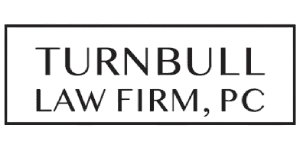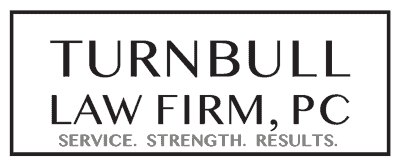Questions & Answers About Accident & Injury Claims in Pennsylvania
What types of cases do personal injury law firms handle in Pennsylvania?
Motor Vehicle Accidents, including car crashes, truck wrecks, motorcycle collisions, and pedestrian injuries, often lead to claims for medical expenses, lost wages, pain and suffering, and other related damages.
Slip and Fall Accidents, also known as premises liability cases, arise when someone is injured due to dangerous conditions on another person’s property—such as slippery floors, broken stairs, poor lighting, or icy walkways.
Product Liability Cases involve injuries caused by defective or unsafe products. Manufacturers, distributors, and retailers may be held legally responsible if a design flaw, manufacturing error, or lack of warning leads to injury.
Workplace Injuries are generally covered under workers’ compensation, but in certain cases—such as those involving unsafe working conditions or third-party negligence—additional personal injury claims may be possible.
Dog Bites and Animal Attacks can result in serious physical and emotional trauma. Under Pennsylvania law, dog owners may be held liable for injuries caused by their animals, especially if the dog had a known history of aggression or the owner failed to take proper precautions.
Wrongful Death Claims are filed by surviving family members when a loved one dies due to someone else’s negligence—such as in a fatal car crash, workplace accident, or case of medical malpractice.
Toxic Exposure Cases, also known as toxic torts, occur when someone is harmed by exposure to hazardous substances like asbestos, mold, lead, or chemical pollutants in the environment or workplace.
Birth Injuries involve harm to a baby or mother during childbirth, often due to medical negligence, delayed responses, or failure to monitor complications. These cases can result in lifelong medical needs and significant financial burdens.
Social Security Disability Claims assist individuals who are no longer able to work due to serious injuries, chronic health conditions, or permanent disabilities in obtaining the federal benefits they are entitled to.
Recreational Accidents, including boating incidents, biking injuries, ATV crashes, or playground-related harm, often involve unsafe premises, poorly maintained equipment, or negligent supervision.
No matter the type of injury, if negligence played a role, victims may be entitled to financial compensation. Speaking with a top-rated personal injury lawyer in Pennsylvania can help you understand your legal options and determine the best course of action for your specific case.
What types of damages can a personal injury lawyer in PA help me recover?
Medical expenses may include current and future costs related to the injury, such as hospital stays, surgeries, doctor visits, prescription medications, and rehabilitative therapy.
Lost wages refer to the income lost while recovering, as well as reduced earning capacity if the injury prevents someone from returning to work or limits future employment opportunities.
Pain and suffering compensation accounts for both physical pain and emotional distress, including anxiety, depression, and loss of enjoyment of life.
Loss of consortium applies when injuries negatively affect the victim’s relationship with a spouse or partner, such as the loss of companionship, support, or intimacy.
Property damage compensation covers the cost of repairing or replacing damaged personal property, such as a vehicle involved in a car crash, motorcycle accident, or commercial truck collision.
Punitive damages may be awarded in rare cases involving gross negligence or intentional misconduct, such as drunk driving accidents or egregious workplace safety violations. These are meant to punish the wrongdoer and deter similar conduct.
Rehabilitation costs include ongoing treatment like physical therapy, occupational therapy, or specialized medical equipment needed for long-term recovery and quality-of-life improvements.
Loss of enjoyment of life refers to the diminished ability to participate in hobbies, recreational activities, or personal interests that once brought fulfillment prior to the injury.
Emotional distress damages may apply when an accident causes PTSD, anxiety, sleep disturbances, or other long-term psychological effects.
Wrongful death damages can be pursued by surviving family members when a loved one dies due to someone else’s negligence. Compensation may include funeral costs, loss of financial support, and emotional pain and suffering.
Permanent disability or disfigurement compensation is available when injuries result in amputation, paralysis, burns, or other conditions that cause lasting physical impairment or alter one’s appearance and daily functioning.
A qualified personal injury lawyer in Pennsylvania can help determine the full scope of damages in your case and pursue the maximum compensation available under state law.
How long do I have after an injury to file a lawsuit in
In certain situations, exceptions may apply. For example, in cases involving toxic exposure, medical malpractice, or other injuries that take time to become apparent, the clock may begin once the injury is discovered or reasonably should have been discovered. Additionally, if the injured person is a minor, the deadline may be extended beyond their 18th birthday.
Missing the statute of limitations deadline can result in permanently losing your right to pursue compensation. That’s why it’s important to consult with a personal injury lawyer in
What is the average settlement for a personal injury claim in Pennsylvania?
For minor injuries—such as soft tissue damage, sprains, or minor fractures—settlements may range from a few thousand dollars, primarily to cover medical bills and limited lost wages. For more serious injuries—including broken bones, traumatic brain injuries, spinal cord damage, or permanent disabilities—compensation can reach into the six or seven figures, especially if the injury requires long-term care or significantly impacts daily life and earning capacity.
Wrongful death claims and cases involving catastrophic injuries tend to result in significantly higher settlements, sometimes reaching millions of dollars, particularly when future lost wages, ongoing medical needs, and pain and suffering are taken into account.
Insurance policy limits can also affect the total recovery available in a given case. In some situations, additional coverage such as underinsured motorist policies, third-party liability, or employer coverage may be explored.
A knowledgeable Pennsylvania personal injury attorney can help assess the full value of your claim, gather the necessary evidence, negotiate with insurance companies, and pursue the maximum compensation available under Pennsylvania law.
How long do most accidents and other personal injury cases take?
More straightforward cases—such as slip and falls or minor car accidents with clearly established fault—often resolve quickly through settlement. However, cases involving serious injuries, disputed liability, commercial vehicles, or multiple parties tend to take longer. Delays can also arise if insurance companies dispute claims, offer low settlements, or intentionally slow the negotiation process.
The severity of the injury is one of the most important factors affecting the timeline. If ongoing medical treatment is needed, attorneys often recommend waiting until the injured person reaches maximum medical improvement (MMI) before settling. This ensures that all current and future medical expenses, rehabilitation costs, and potential long-term effects are properly considered in the claim.
If a case proceeds to trial, the process can take one or more years to complete. Pre-trial procedures—such as discovery, depositions, expert evaluations, and motions—combined with court scheduling and judicial backlogs in certain Pennsylvania counties, can significantly extend the timeline.
Every case is different. The best way to understand how long your specific claim might take is to speak with an experienced Pennsylvania personal injury lawyer who can assess the facts of your case, monitor medical progress, and guide you through each stage of the legal process as efficiently as possible.
Can I receive compensation if I was partially at fault for a slip and fall accident in
For example, if you slipped on a wet floor in a grocery store but were looking at your phone instead of noticing posted warning signs, the court or insurance company may determine that you were 20% at fault. If your total damages were $50,000, your compensation would be reduced by 20%, resulting in a recovery of $40,000.
Insurance companies and property owners often try to shift blame onto the injured party to reduce or deny claims. Working with an experienced slip and fall attorney in
Can I file a personal injury claim if I was injured at work in Philadelphia?
If a third party—such as a subcontractor, equipment manufacturer, or property owner—was responsible for your injury, you may have legal grounds to pursue additional compensation. For example, if you were injured in a fall at a construction site due to faulty scaffolding, or suffered a serious injury caused by defective machinery, you may be able to file a personal injury lawsuit against the responsible third party.
Unlike workers’ comp, a personal injury claim can cover pain and suffering, full lost wages, future earning capacity, and non-economic damages that workers’ compensation does not provide. An experienced workers’ compensation attorney in Pennsylvania can help evaluate whether your case qualifies for both types of claims and ensure that you pursue all available compensation under the law.
Can I qualify for Social Security Disability (SSDI) after a serious injury?
Eligibility for SSDI depends on several factors, including the severity of your injury, your inability to engage in substantial gainful activity, and your work history. Conditions such as traumatic brain injuries, spinal cord damage, severe fractures, or other catastrophic injuries may qualify if they prevent you from working consistently or returning to your previous occupation.
The SSDI application process can be complex, and many claims are initially denied. An experienced Pennsylvania personal injury or Social Security disability attorney can help you gather the necessary medical documentation, file a strong claim, navigate appeals if needed, and improve your chances of receiving approval.
If your disability was caused by someone else’s negligence, you may also be entitled to pursue a personal injury claim in addition to seeking SSDI benefits. These legal options can work in tandem to provide both immediate and long-term financial relief.
How do I prove negligence in a personal injury case in PA?
Duty of care means the at-fault party had a legal responsibility to act in a way that avoids causing harm. For instance, drivers must obey traffic laws, property owners must maintain safe premises, and employers must provide safe working environments.
Breach of duty occurs when that legal responsibility is violated. This could involve a driver running a red light, a landlord ignoring a broken stair, or a business failing to clear a slippery floor in a timely manner.
Causation requires proving that the breach of duty was the direct cause of your injuries. For example, if a distracted driver crashes into your vehicle or a hazardous floor surface in a store causes you to fall, you must show that their negligence directly led to your harm.
Damages refer to the actual losses you suffered as a result of the injury. These may include medical bills, lost wages, pain and suffering, emotional distress, or any other financial or non-financial impact. Without provable damages, a claim cannot succeed.
Proving negligence typically requires a combination of evidence, such as witness statements, video surveillance, medical records, photographic documentation, and expert testimony. A skilled personal injury law firm in Pennsylvania can help gather and present the right evidence to build a strong case and pursue the maximum compensation available under the law.
How do pre-existing medical conditions affect a personal injury claim?
For example, if you had a prior back injury, and a car accident caused additional damage or increased your symptoms, you may still have a valid personal injury claim. The key is to use medical records to compare your condition before and after the incident to show that the accident made your injury worse.
It is essential to be completely honest about any pre-existing conditions, as insurance companies will thoroughly review your medical history. An experienced Pennsylvania personal injury attorney can help gather and present medical evidence, work with your treating physicians to document the change in your condition, and push back against insurance company efforts to minimize or deny your claim.





















